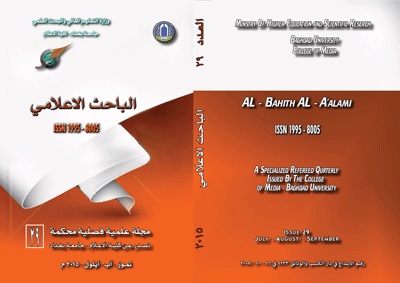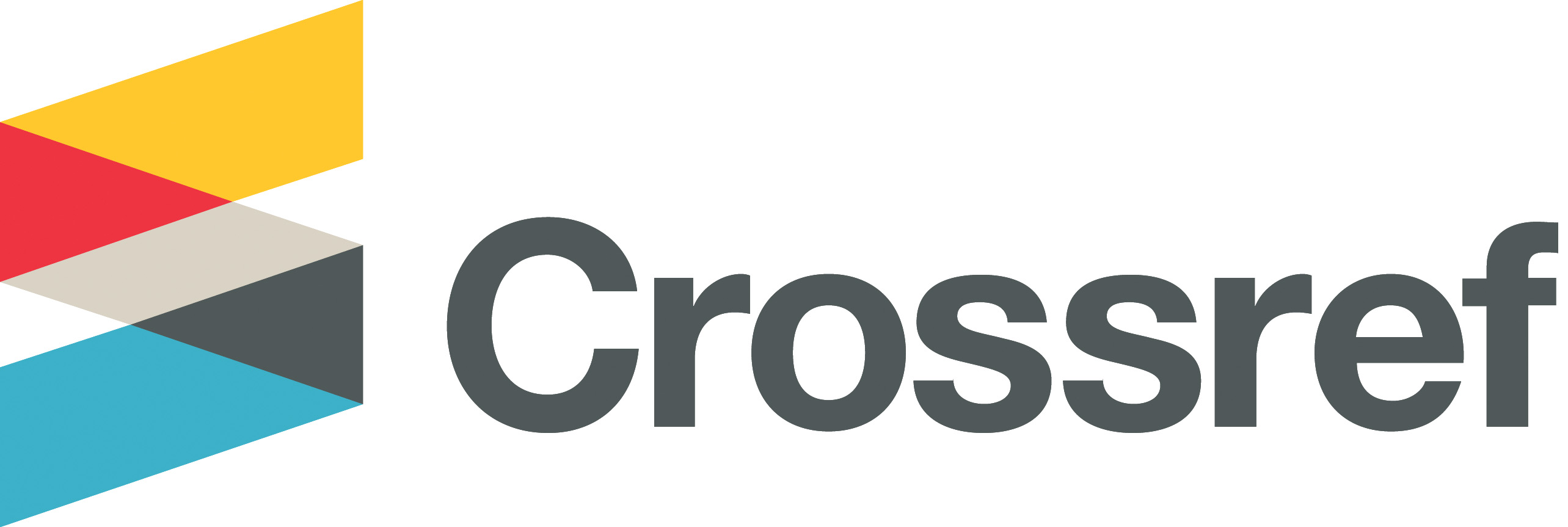Dependence on Media and the Formation of the Level of the Academic Elite's Knowledge concerning United Nations' Affairs (A research based on a doctoral thesis)
DOI:
https://doi.org/10.33282/abaa.v7i29.191Keywords:
Dependence, Media, Formation, Academic Elite's, Knowledge, United Nations'Abstract
The UN organization is considered one of the most important organizations at the international level. It has accomplished multiple tasks and roles of many different issues and events that hit the developing and advanced world countries. It has performed a series of procedures and laws that have had an impact on ending the wars and conflicts that plagued some countries and continued for a period of time in the past. Moreover, it has improved the level of the international relations between a number of countries due to the problems and incidents took place between them. It has relied on finding solutions and treatments for humanitarian problems such as the preservation of the environment, preventing the spread of epidemics and diseases This study has come up with several results, most notably are the following:
1. The results of the study have shown that (258) of the sample has indicated that they spend 1-3 hours a day following up the media.
2. The academic elite has pointed out that the activity performed by the UN is a political one in that it has ranked first with (349) and a percentage of (%73.31).
Downloads
References
(2) Rasem Mohammed Al-Jamal, Introduction to Research Methods in Media Studies (Cairo: Cairo University Open University, 1999) p. 143.
(3) Sami Taya, Introduction to Research Methods (Cairo: Cairo University Center for Open Education, 2004) pp. 195-196
(4) Mohammed Atrouson, Ahmed Abdel Moneim, Ahmed Mansour, peace be upon him.
(5) Mohammed Abdul Aziz Al-Hizan, Media Research, Foundations, Methods, Areas, I, II (Riyadh: Publishing is unclear) p.
(*) The questionnaire was presented to the experts as follows
Prof. Dr. Wassam Fadhil Rady, University of Baghdad, Faculty of Media, Radio, and Television Press Section.
2.Saad Al-Hadithi, Iraqi University, Faculty of Media, Press Department.
3. Rashid Hussein, Baghdad University, Faculty of Media, Public Relations Department.
Dr. Mohammed Al Fayyad, Kingdom of Bahrain, Gulf University. (Sent by e-mail)
5. Saad Salman Al-Mashhadani, University of Tikrit, Faculty of Arts, Department of Information ..
6. Ghada Abdel Tawab Al-Yamani, Arab Republic of Egypt, Tanta University, Faculty of Arts, Department of Information. (The form was sent via e-mail).
7. Raya Qahtan Al-Hamdani, University of Baghdad, Faculty of Media, Public Relations Department.
8.M. Mohammed Jayyad Zainuddin, Iraqi University, Faculty of Media, Public Relations Department.
9. Baqer Musa Jassim, Baghdad University, Faculty of Media, Public Relations Department.
10. Fatima Abdul Kadhim Hamad, Baghdad University, Faculty of Media, Public Relations Department.
11. Salem Jassim Mohammed, Baghdad University, Faculty of Media, Public Relations Department
12.D.M. Mohsen Golub Kanani, University of Baghdad, Faculty of Information, Department of Journalism Radio and Television
[6] Muhammad Abdul Aziz Al-Hayzan, former source, p. 65
(7) Statistical data obtained by the researcher / Department of studies, planning and follow-up / at the Ministry of Higher Education and Scientific Research on 3/9/2013
(8) Higher Education and Scientific Research: Figures and Facts (Baghdad: Ministry of Higher Education and Scientific Research, Department of Information and Relations, 2014) p. 29.
(9) Shaima Zulfikar Zogheib, Methods of research and statistical uses in media studies (Cairo: The Egyptian Lebanese House, 2009) p. 244.
(10) Barakat Abdul Aziz, Media Research Methods, a previous source p. 141.
(11) Shadi Ibrahim Bahloul, press releases, and their effects (Mansoura: Modern Library, 2013) p. 172.
12 Wadah Zeitoun, The Political Dictionary (Amman: Dar Osama Publishing and Distribution, 2010) p. 332.
[13] Ihsan Mohamed El-Hassan, Encyclopedia of Sociology (Beirut: The Arab House of Encyclopedias, 1999) p. 633.
14 Gordon Marshall, Encyclopedia of Sociology: Translation by Ahmed Zayed et al., National Project of Translation No. 251 (Cairo: Supreme Council of Culture, 2000), p. 875.
(15) Ali Hussein Ali Al-Ammar, The relationship between the adoption of the elite on the right-wing newspapers and the prioritization of environmental issues, unpublished master thesis (Helwan: Faculty of Arts, Department of Information, Helwan University, 2004) p.
(16) Tharwat Zaki, Political and Social Change: The Experience of Egypt 1952 1967 (Cairo: World of Books, 2005) p. 21.
(17) Mouloud Zayed al-Tayeb, Political Sociology (Tripoli: University Press, April 7, 2007) p. 189
(18) Suzanne Al-Kalini, Salah Madkour, The Arab Media: The Present and the Future (Cairo: The Arab Renaissance House, 2003) p. 75.
(19) Dr. Hassan Nafea, Arabs and UNESCO (Kuwait: Al-Resalah Press, 1989) p.
(20) Adnan Abdul Aziz Mahdi Al-Husseini, The United Nations Past, and Present Future, Tikrit University Journal of Humanities, vol. 4 (Tikrit University, Faculty of Law and Politics, 2005) p 286
[21] Suhail Hussein Al-Fatlawi, United Nations, C.1, United Nations Goals (Amman: Dar Al-Hamed Publishing and Distribution, 2011) p.
[22] Suhail Hussein al-Fatlawi, op cit., P. 44
(23) Abdel Karim Alwan, International Law (Alexandria: Knowledge Establishment, 2007) p. 377
(24) Mohammed Al-Saeed Al-Dakqak, International Organization (Alexandria, University House, 1983) p
[25] Mohammed Al-Saeed Al-Dakqaq, source, p. 202.
* The name "United Nations" was proposed by the President of the United States, Roosevelt, officially using the name for the first time in 1942, signed representatives of 26 countries on the United Nations Declaration, in honor of President Roosevelt, who died a few weeks before the signing of the Charter. All those present at the San Francisco Conference agreed to adopt the name " "He said.
Downloads
Key Dates
Published
Issue
Section
License
Authors retain copyright and grant the journal right of first publication with the work simultaneously licensed under a Creative Commons Attribution License (CC BY 4.0) that allows sharing the work with recognition of authorship and initial publication in ABBA journal.


















